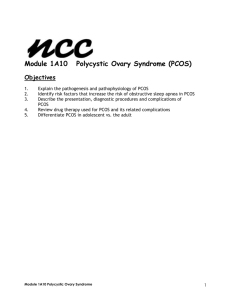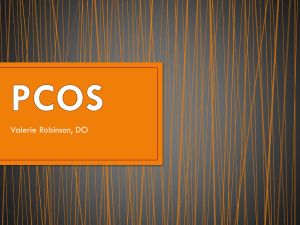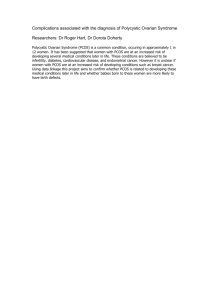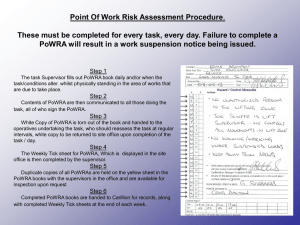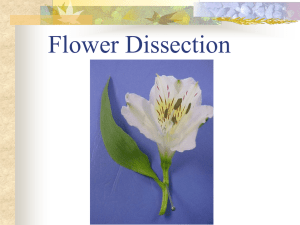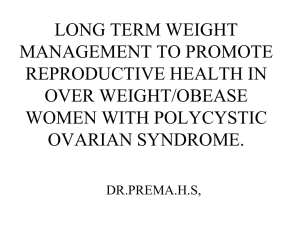ESE PCOS Special Interest Group`s Questionnaire
advertisement
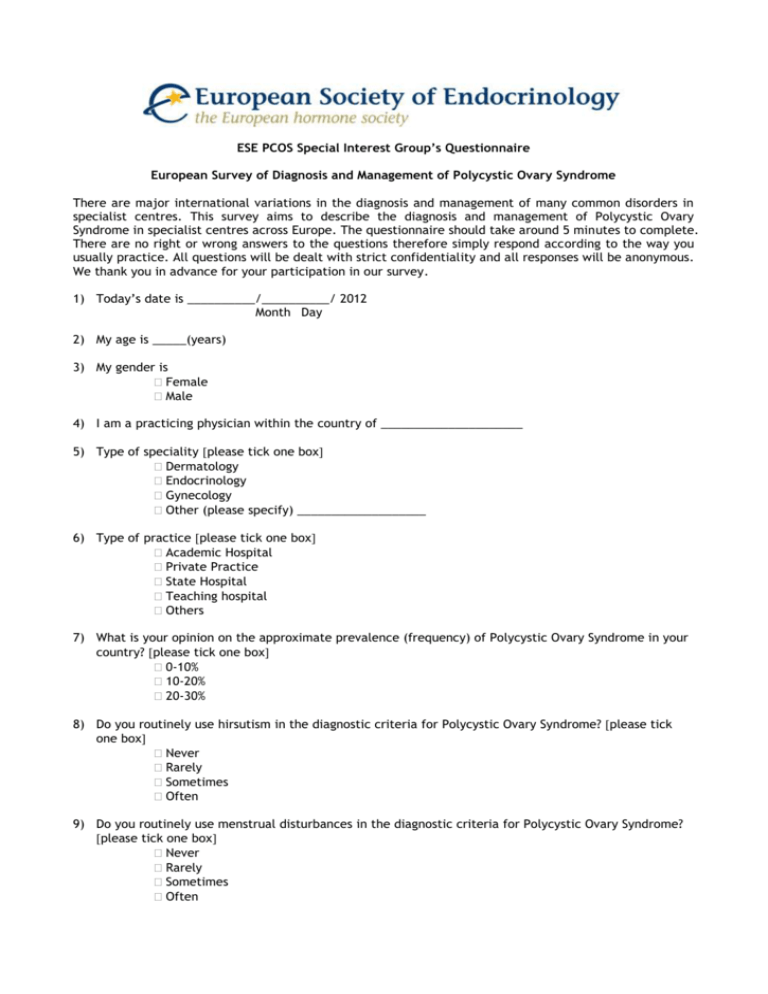
ESE PCOS Special Interest Group’s Questionnaire European Survey of Diagnosis and Management of Polycystic Ovary Syndrome There are major international variations in the diagnosis and management of many common disorders in specialist centres. This survey aims to describe the diagnosis and management of Polycystic Ovary Syndrome in specialist centres across Europe. The questionnaire should take around 5 minutes to complete. There are no right or wrong answers to the questions therefore simply respond according to the way you usually practice. All questions will be dealt with strict confidentiality and all responses will be anonymous. We thank you in advance for your participation in our survey. 1) Today’s date is __________/__________/ 2012 Month Day 2) My age is _____(years) 3) My gender is Female Male 4) I am a practicing physician within the country of _____________________ 5) Type of speciality please tick one box Dermatology Endocrinology Gynecology Other (please specify) ___________________ 6) Type of practice please tick one box Academic Hospital Private Practice State Hospital Teaching hospital Others 7) What is your opinion on the approximate prevalence (frequency) of Polycystic Ovary Syndrome in your country? please tick one box 0-10% 10-20% 20-30% 8) Do you routinely use hirsutism in the diagnostic criteria for Polycystic Ovary Syndrome? please tick one box Never Rarely Sometimes Often 9) Do you routinely use menstrual disturbances in the diagnostic criteria for Polycystic Ovary Syndrome? please tick one box Never Rarely Sometimes Often 10) Do you routinely use biochemical hyperandrogenism in the diagnostic criteria for Polycystic Ovary Syndrome? please tick one box Never Rarely Sometimes Often 11) Do you routinely use pelvic ultrasonography in the diagnostic criteria for Polycystic Ovary Syndrome? please tick one box Never Rarely Sometimes Often 12) Do you routinely use Anti-Müllerian Hormone for the diagnosis of Polycystic Ovary Syndrome? please tick one box Never Rarely Sometimes Often 13) Do you ask your patients about family history of diabetes, cardiovascular disease and Polycystic Ovary Syndrome? Yes No 14) Of those patients that YOU have diagnosed with Polycystic Ovary Syndrome, what was the most common reason for clinic attendance? please tick one box Hirsutism Infertility Menstrual disturbances Metabolic disorders Obesity 15) Which are the two most common biochemical parameters you use in the differential diagnosis of hyperandrogenism in your patients? please tick two boxes only Androstenedione DHEAS Total Testosterone Free Testosterone (direct measurement) FAI 17OH Progesterone Prolactin 16) How many patients with Polycystic Ovary Syndrome have you seen in the last year? please tick one box <50 50-200 >200 17) What is the most frequent age of diagnosis of Polycystic Ovary Syndrome in your practice? please tick one box <20 yrs 20-30 yrs >30 yrs 12) What is the most frequent source of patients with Polycystic Ovary Syndrome in your practice? please tick one box Dermatologist Endocrinologist Gynecologist General Practitioner Self-referral Ultrasound specialist/practitioner Other (please specify) ___________________ 13) Do you run a Multidisciplinary Service for patients with Polycystic Ovary Syndrome? Yes No 14) Which specialist is collaborating with YOU for the management of patients with Polycystic Ovary Syndrome? please tick ALL that collaborate with YOU Cardiologist Dermatologist Endocrinologist Gynecologist Nutrizionist Psychologist Other (please specify) ___________________ 15) What is YOUR most important long-term concern on Polycystic Ovary Syndrome? please tick one box Infertility Cardiovascular diseases Obesity and type 2 diabetes Endometrial cancer Psycho-social problems 16) Which treatments do YOU most commonly prescribe for most of your patients with Polycystic Ovary Syndrome? please tick the treatments most frequently used Antiandrogens Laser depilation Lifestyle modifications Metformin Oral Contraceptives 17) Which treatments do YOU most commonly prescribe for most of your patients with Polycystic Ovary Syndrome regarding fertility? please tick the treatments most frequently used Clomiphene citrate Clomiphene citrate + Metformin Lifestyle modifications Metformin Ovulation inductors Again, thank you for filling out this questionnaire. Your responses are greatly appreciated. Please send in the completed questionnaire to the ESE Secretariat by email to info@euro-endo.org Thank you!
